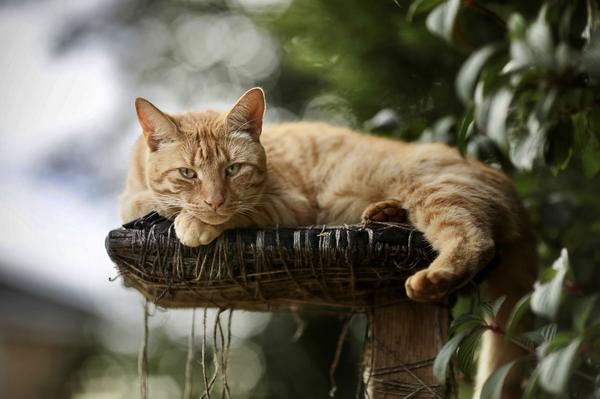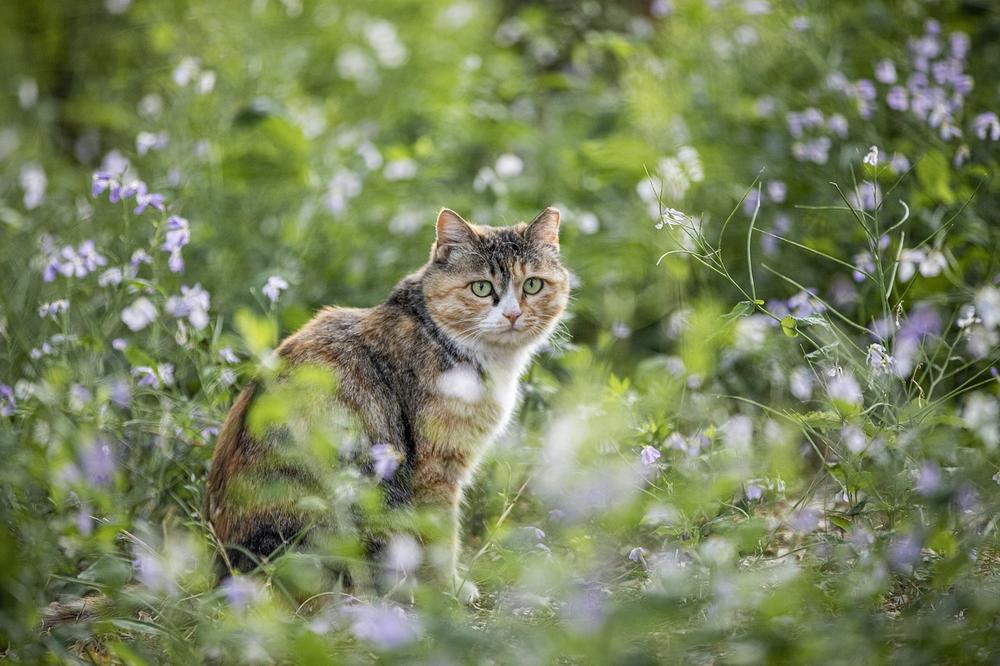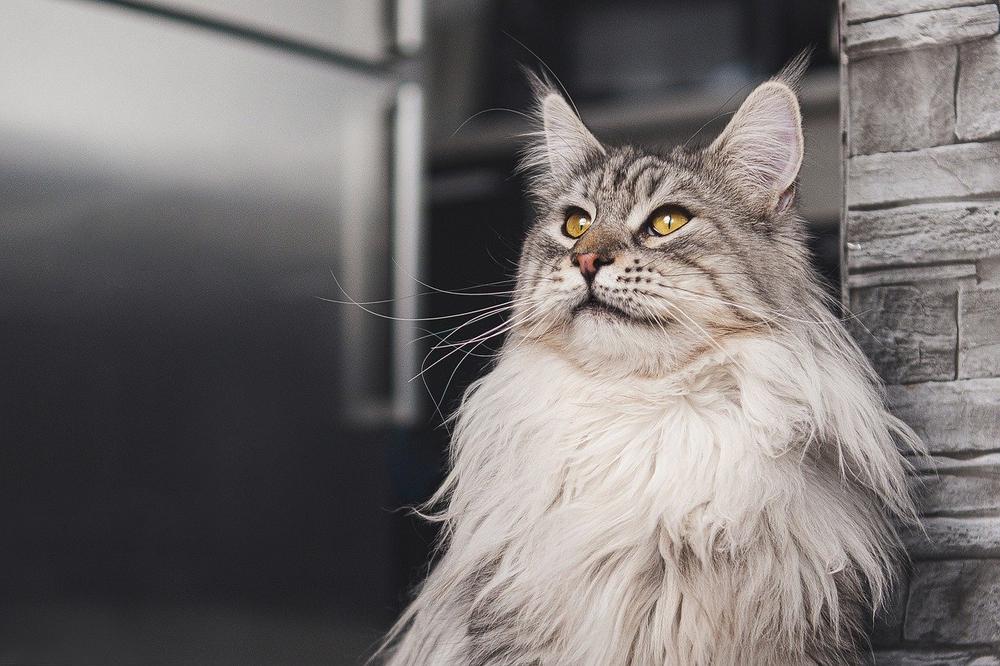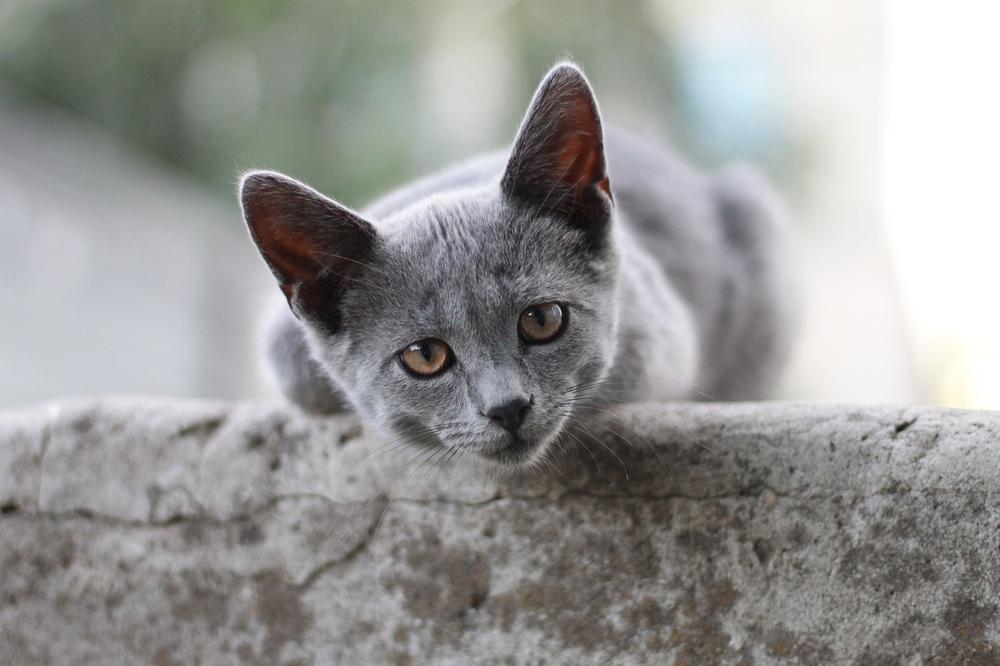Can Two Pregnant Cats Live Together? GOOD or BAD Idea?

Is it a purring party or a pregnancy predicament?
Have you ever wondered if two pregnant cats can peacefully coexist?
I mean, when it comes to expecting mamas, we want what's best for them, right?
We can't help but worry about their well-being. 😊
Picture this:
You're fretting about your feline friends, trying to figure out if they can safely hang out together.
Well, buckle up and get ready, because we're about to dive into the world of pregnant cat cohabitation.
Let's find out if these expecting divas can embrace each other's baby bumps.
Ready?
Let's begin.
Should Your Pregnant Cats Be Separated?

When it comes to deciding whether to separate pregnant cats, there are a few things to consider. Here is a practical and useful list to help you make the best decision for your cats:
- Observe their temperament: Take note of how the pregnant cats interact with each other. If there is aggression or stress displayed by one cat towards the other, it may be necessary to separate them for their safety.
- Assess their compatibility: If all the cats in the household get along well and show no issues with each other, separation may not be needed. Monitor for signs of anxiety or stress between the cats and address any problems that arise.
- Separate during labor: It is advised to separate the cats until the litter is born to ensure a peaceful birthing environment. However, after the birth, depending on their relationship, there may not be a need for continued separation.
- Consider cohabitation: In some cases, female cats who are friendly and live together can even share their litters. Close monitoring of interactions is crucial in such situations.
- Introduce gradually: If you choose to have both pregnant cats together, introduce them slowly through scent swapping and supervised interactions to improve their compatibility.
- New mothers can live together: If one of the cats has recently given birth, two pregnant cats can live together peacefully.
Ensuring these aspects are taken into account will enable you to establish a secure and pleasant habitat for your expecting felines.
Main points I'll expand upon further down this article:
- Pregnant cats may experience morning sickness and stomach growth.
- Cats that are relatives are more likely to share litters.
- Pregnant cats may become more tired and seek extra attention.
- Observe signs of aggression or stress between pregnant cats after giving birth.
- Enrichment, such as toys and scratching posts, prevent boredom-related issues.
And now, let's dive deeper into what you should expect during your pregnant cat's journey and how to ensure their health and well-being through monitoring and enrichment...
Cats’ Behavior During Pregnancy
During pregnancy, cats can display changes in their behavior that are important to monitor. Here are some key points to bear in mind:
- Cats may experience increased thirst and hunger, but some may show a decrease. Keeping an eye on their eating and drinking habits can provide insights into their overall health.
- Morning sickness is common for pregnant cats. If you notice your cat exhibiting signs of nausea or vomiting, consult with your veterinarian.
- Around four to five weeks into pregnancy, cats' stomachs will start to noticeably grow. This is a visible sign that your cat is pregnant.
- It's important to observe any signs of aggression or stress during interactions. Mother cats may become protective after giving birth.
- Enrichment, such as toys and scratching posts, can help keep pregnant cats mentally stimulated and prevent boredom-related behavior issues.
- Creating a calm and peaceful environment is crucial for the well-being of pregnant cats. Limit loud noises or stressful situations as much as possible.
Ensure a healthy and comfortable pregnancy for your cat by being attentive to these details and offering proper care.
And finally, if you've been noticing some unusual bathroom behavior from your pregnant feline friend, don't fret! Understanding why pregnant cats may experience changes in their bathroom habits can be tricky.
That's why it's helpful to check out my blog post on Pregnant Cat Pooping Everywhere.
In this article, I delve into the reasons behind this common issue and provide helpful solutions to keep your pregnant cat comfortable and your home clean.
Don't miss out on this valuable resource as you navigate the exciting journey of your cat's pregnancy!
Caring for Pregnant Cats
Caring for pregnant cats is a big responsibility, but don't worry, I'm here to help!
Here are some essential tips to keep your mama cat healthy and happy:
- Nutrition matters: Providing a well-balanced diet with necessary nutrients is crucial during pregnancy. Consult your vet for dietary recommendations and make sure to feed her the additional calories she needs.
- Hydration is key: Pregnant cats need to stay hydrated, so make sure she has regular access to fresh water. Consider placing multiple water sources around your home to ensure she can easily quench her thirst.
- Separate feeding areas: To ensure each cat gets enough food and water, it's important to have separate feeding areas. This will prevent competition and ensure that the pregnant cat gets the nourishment she needs.
- Monitor maternal aggression: Maternal aggression is common in pregnant cats, but it usually diminishes once the kittens are born. However, always be cautious and take steps to protect yourself and others from potential harm.
- Regular check-ups: Schedule regular veterinary check-ups throughout the pregnancy period to monitor the health of both the mother and the kittens. Your vet will be able to provide guidance and address any potential issues that may arise.
Taking good care of your pregnant cat is crucial for a successful and healthy pregnancy.

Good luck! 😺
But caring for pregnant cats is not without challenges.
So, how can you recognize signs of distress and complications?
Things to Watch Out for in Pregnant Cats
Signs of distress or complications to watch for
If your cat is pregnant, you need to keep an eye out for any signs that something might be wrong. If she's in labor for a long time or if there's discharge with a bad smell coming from her vagina, it could mean trouble.
Also, if she's not eating and seems to be grooming her tummy a lot, these are red flags that require a trip to the vet.
Monitor behavior changes during labor
When your cat is giving birth, you'll notice some changes in her behavior.
She may start licking herself more, pacing back and forth, and even howling.
These things are totally normal and mean she's getting ready to have those kittens.
Just ensure to give her a calm and stress-free environment during this time.
Watch for signs of allergies and minimize stress
Believe it or not, pregnant cats can get allergies too!
So keep an eye out for signs like scratching, licking, chewing, or patches of red or dry skin.
If you see any of these signs, take her to the vet for the right treatment to keep both her and the kittens healthy.
To reduce stress, try to avoid loud and crazy activities around pregnant cats. Bringing in new cats or kittens during this time can cause unnecessary problems.
It's also a good idea to have separate litter boxes for each cat to prevent infections from spreading. And if one pregnant cat gets sick, keep her away from the others to stop any potential diseases from spreading.
Taking care of pregnant cats requires extra attention and care.
By watching closely and being proactive, you can make sure your furry friend has a safer and healthier pregnancy.
Common Concerns and Tips for Cohabitating Pregnant Cats
Unrelated pregnant cats can peacefully cohabitate if they've previously demonstrated a harmonious bond before pregnancy.

To ensure positive interactions, observe them closely and introduce them gradually.
After giving birth, it's best to keep the kittens with their mothers for at least 12 to 14 weeks.
This safeguards against potential issues in their socialization, health, and development.
And that wraps up today's article.
If you wish to read more of my useful articles, I recommend you check out some of these: Cat Humps Toys, Stray Cat Follows You, Will Male Cats Try to Mate Hump With Other Males, Why Do Cats Hate Getting Their Nails Cut, and Do Cats Eat Their Own Poop
Talk soon,
-Sarah Davis